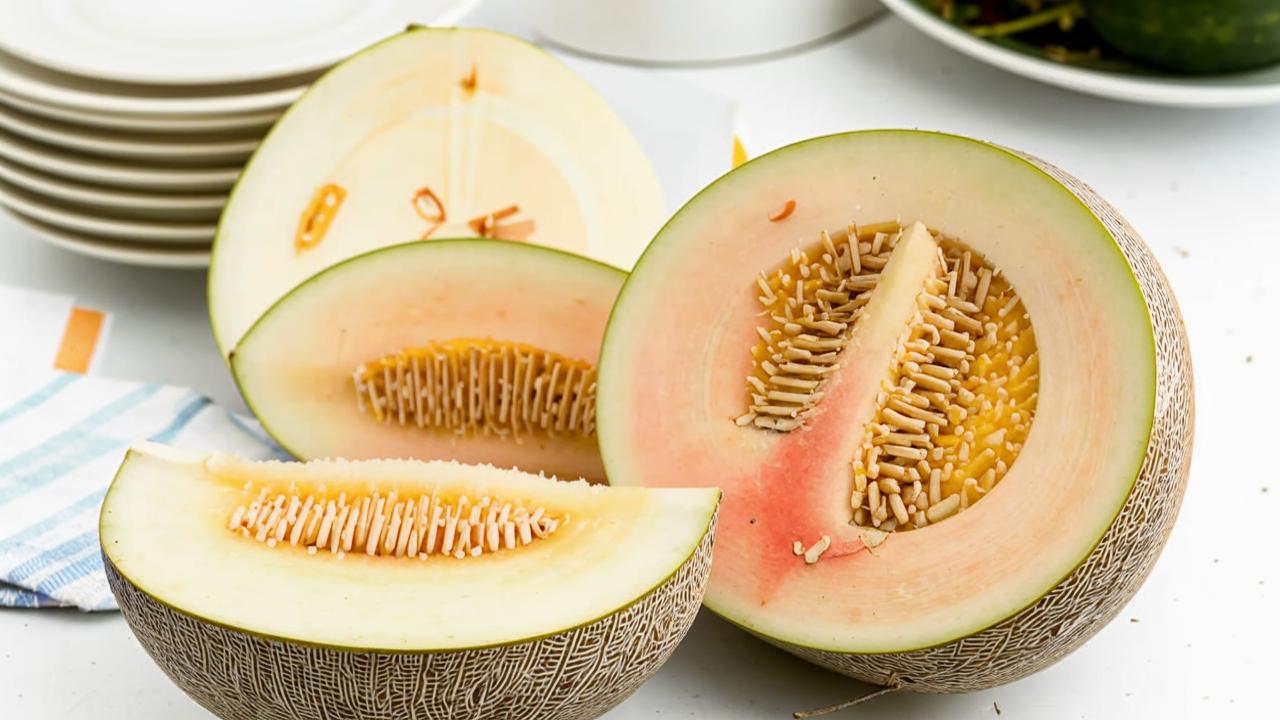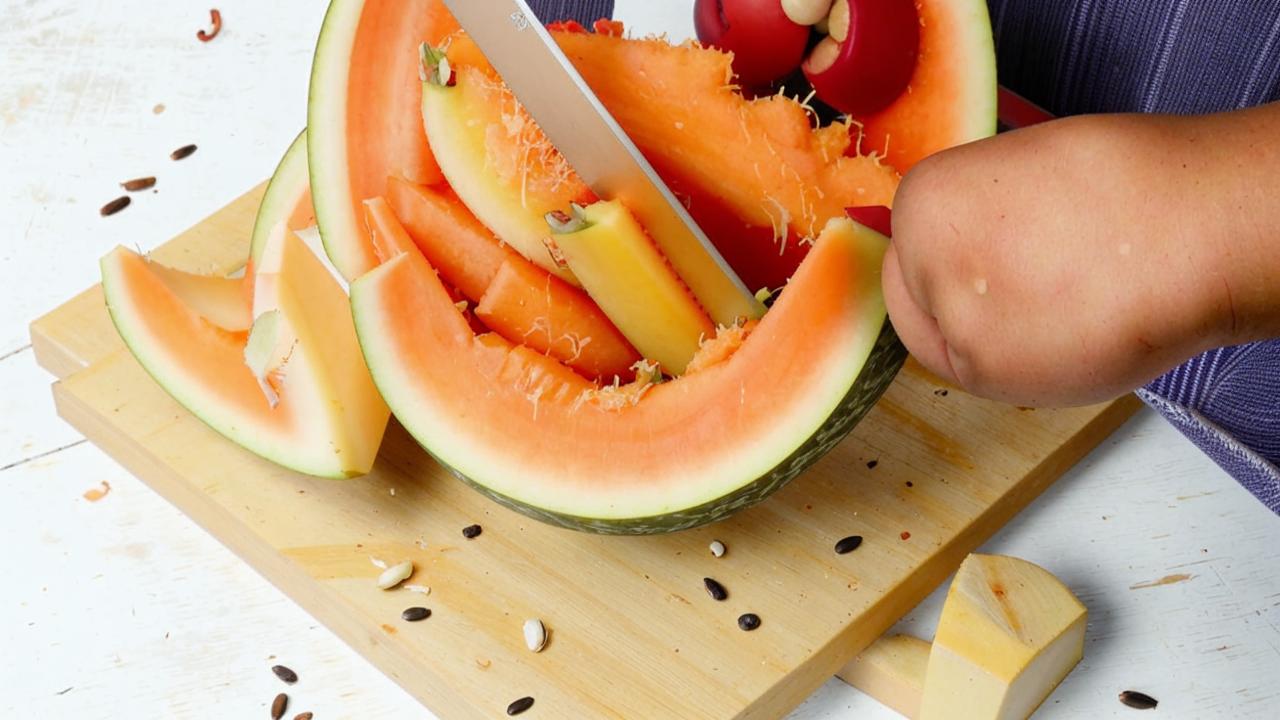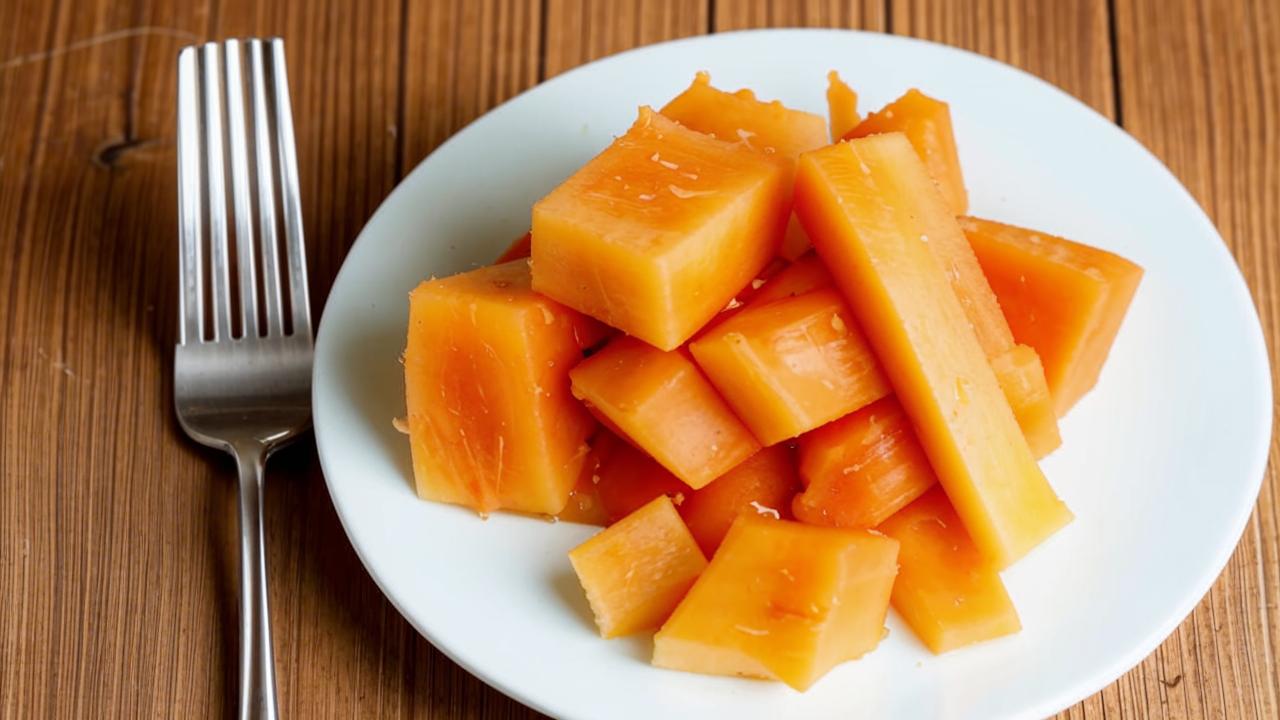
doctor of the highest category, nutritionist, expert of the scientific department (MIIN)
“Melon is a gourd crop from the gourd family, which has a kinship with the cucumber. Specialists count about 3,000 varieties.”
The fruit has a spherical or cylindrical shape. Its color can be green, brown, yellow or white with green stripes. The flesh is juicy, with a sweet, rich flavor. Depending on the variety, its color varies from white to orange.
Most often melon is eaten fresh and chilled, removing the inedible rind and cutting the flesh into cubic or spherical slices.
Useful properties of melon
Melon is a low-calorie product, in 100 grams only 35 kcal.
The composition of the product includes proteins, carbohydrates (sugars, starch, fiber), organic acids, vitamins, minerals. Water and electrolytes contained in melon (potassium, magnesium, sodium) help to maintain water balance in the body.

The chemical composition depends largely on soil and climatic conditions of cultivation.
A 100 g serving of melon contains:
- 18 mg of vitamin C (1/4-1/3 of the daily requirement)
This is the best known antioxidant, which prevents cell aging, reduces inflammation in the body, promotes iron absorption, participates in collagen synthesis and strengthens immunity.
- 82.0 mg of silicon – approximately 270% of the daily value.
Helps strengthen blood vessel walls, maintain the tissue structure of cartilage, ligaments, and keeps skin moisturized.
- 19 mcg folic acid.
Supports the health of the nervous and reproductive systems.
Helps regulate blood pressure, participates in the processes of conduction of nerve impulses, which affects muscle contraction and heart function.
- 2.9 mcg of vitamin K.
Activates osteocalcin (a protein that transports calcium to the bones). Stimulates collagen production, maintains bone elasticity, and reduces the risk of fractures.

Melon also contains magnesium, iron, calcium, phosphorus, selenium, B vitamins. The pulp of the product contains antioxidants: beta-carotene (provitamin A), quercetin, zeaxanthin, phytoin and lutein. They protect the body from free radicals and support eye health.
Due to the sufficient amount of fiber (0.8 g in 100 g) melon helps normalize digestion, the prevention of constipation. In addition, due to the content of carotenoids, natural organic pigments, the product has an antitumor effect and reduces the risk of lung cancer, breast cancer.
In addition to the pulp, melon seeds are also used in food. They are rich in beta-carotene, vitamin PP, folic acid. And are also a powerful aphrodisiac and positively affect the fertile functions of men.
Seeds have diuretic, anti-inflammatory effect, have a choleretic effect, improve the condition of the liver and kidneys, help in the treatment of coughs and respiratory diseases.

Recommendations for use
Despite the low calorie content, melon contains a significant amount of fructose – an average of 3 g per 100 g of product. Excessive consumption of it can lead to fatty degeneration of the liver, since it directly enters the liver for metabolism.
A healthy person can eat no more than 200-300 g of melon per day. People with metabolic diseases should reduce this portion.
On a side note: if after eating melon you observe abdominal bloating, you may have a syndrome of excessive bacterial growth in the small intestine. In this case, consultation with a specialist is required.
A small amount of the product can be given to children from the age of one and a half years as a separate meal. Melon is quite difficult to digest, and if the child has digestive problems, it should be introduced into the diet no earlier than three years old. The standard portion for babies is up to 50 g.
It is worth noting that melons can be poisoned. Poisoning is provoked by nitrates that get into the fruit from the soil during cultivation. The most dangerous in this regard are early fruits and very late fruits, in them the concentration of nitrates is the highest. Storage of melons leads to the accumulation of nitrates, so you should eat them in season.
The highest concentration of nitrates in the crust area, so it is better to eat the pulp closer to the center of the fruit, where it is safest.
Kontraindikácie
- With liver disease, peptic ulcer disease, violation of the microbiome, nausea, bloating and overgrowth of microorganisms in the intestines are possible.
- Allergic reaction, since melon contains an allergen – protein profilin.
- It is not recommended to consume melon seeds in combination with alcohol or milk, as the interaction of the substances contained in them can lead to poisoning.
- Melon is not combined with beta-blockers. These are medications that are prescribed for cardiovascular diseases. Simultaneous intake of them can cause a dangerous increase in potassium levels, which threatens to exacerbate the underlying disease and damage to the kidneys.






